
Bristol
Bristol has ambitious plans for growth, built on strong foundations.
It has long-standing strengths in cutting-edge sectors, such as creative industries and digital technology. Bristol is a recognised leader in sustainability, being the first city in the UK to declare climate and ecological emergencies.
Bristol is one of Europe’s leading cities in climate action and the UK’s only city to be awarded European Green Capital. Its City Leap Energy Partnership is expected to invest over £1bn in smart, sustainable energy. City Leap is a pioneering initiative to package together net zero projects at scale to attract private investment.
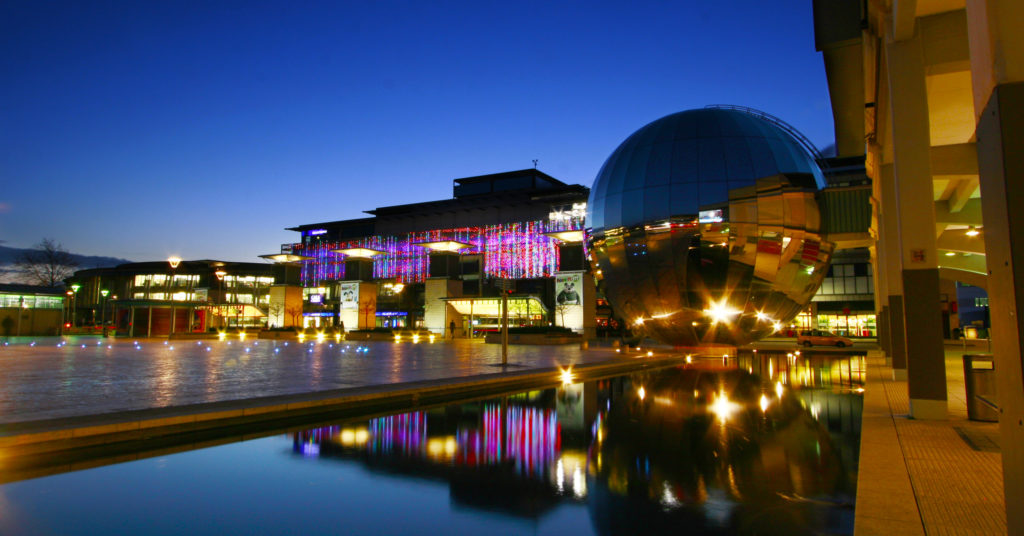 Image credit: Bristol Design
Image credit: Bristol Design Major regeneration projects
Bristol city is regenerating responsibly, putting sustainable growth at the heart of everything it does. The city has strong demand for more housing; must provide jobs for the growing population and at the same time, Bristol wants to enhance its already well-regarded public spaces and natural environment.
This ambition creates wide-ranging investment opportunities for partners who share Bristol’s values and believe in being part of the city’s long-term outlook.
Investment showcase
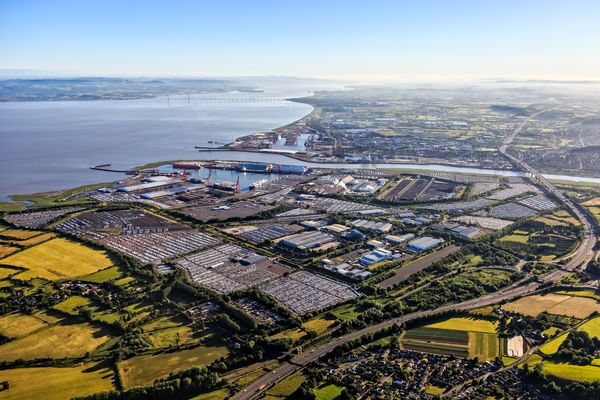
Avonmouth
Avonmouth is at the centre of Bristol’s industrial, warehousing, energy generation and recycling, and new value-adding ‘circular economy’ activities.
The area is looking to attract more advanced manufacturing and engineering companies on a ‘net zero’ model, and to expand its ‘circular economy’ activities.
At the same time the logistics sector will continue to grow, but, as connectivity and infrastructure improves this will be balanced with manufacturing and processing, a focus on emerging opportunities in food, construction, aerospace and other advanced engineering. All this will offer higher quality jobs to benefit local communities. Find out more
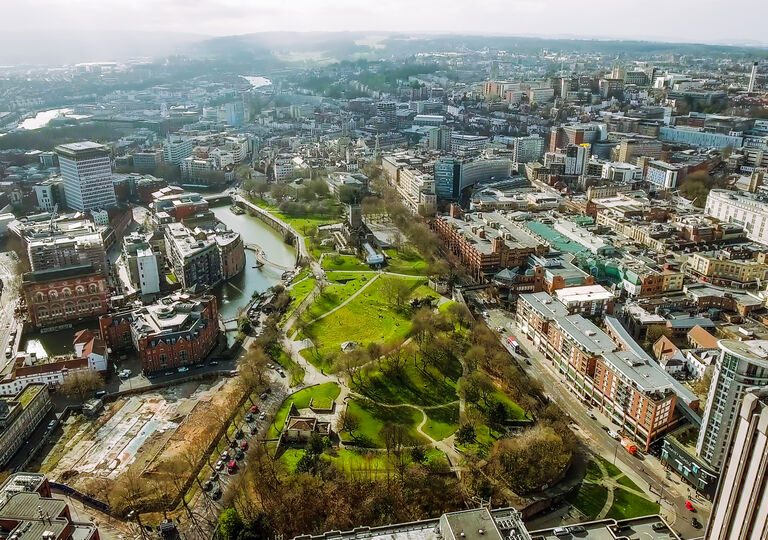
Bristol city centre development and delivery plan
Bristol City Council is working with local residents, businesses, landowners, developers and other stakeholders to guide to the long-term regeneration of central Bristol. Endorsed by Council Cabinet in December 2023, a City Centre Development and Delivery Plan (DDP) has been prepared to act as a “material consideration” in determining planning applications and a guide to the Council’s future investment decisions. The plan identifies what needs to be done to:
- Create inclusive and sustainable economic growth
- Provide quality homes for Bristol’s growing population
- Create jobs and opportunities in places that people can reach sustainably
- Support a thriving leisure and retail sector and night time economy
- Respond to the climate and ecological emergencies
- Provide quality public places and a green and healthy environment.
The plan is in two parts, and can be found on the planning pages of Bristol City Council’s website at Supplementary planning documents, practice notes and other planning guidance (bristol.gov.uk).
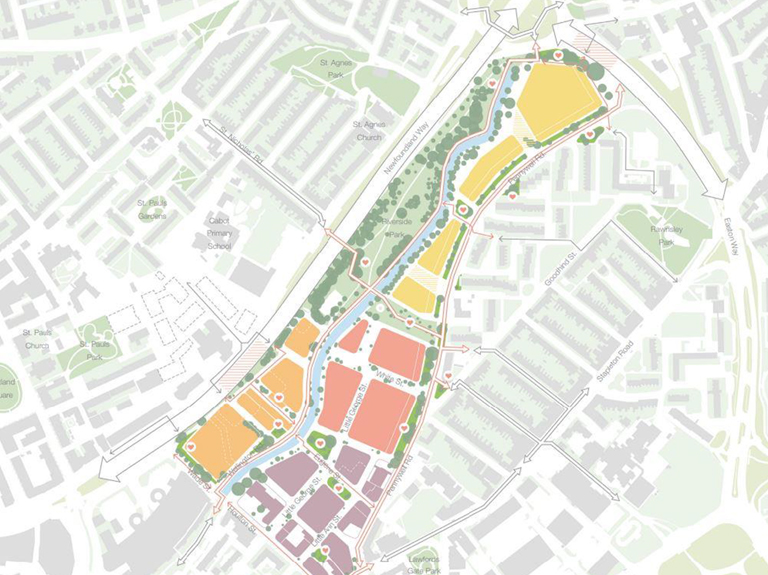
Frome Gateway
Bristol City Council is working in partnership with the local community to guide and shape the long-term transformation of the land either side of the River Frome in St Jude’s, known as Frome Gateway, located just to the north of the Cabot Circus regional shopping centre.
Our ambition is for Frome Gateway to become an exemplar neighbourhood recognised for high-quality and sustainable design and construction, its unique identity and community spirit, and its ability to support communities to live healthy and sustainable lifestyles. We want the regeneration of Frome Gateway to be a bold and ambitious response to the climate and ecological emergencies and are exploring this as a priority design theme.
To do this, the Council endorsed a Regeneration Framework for this 15 hectare with a number of ambitious targets, including 1000 new homes and 22000 sq m of new employment space. For further information please visit Frome Gateway.
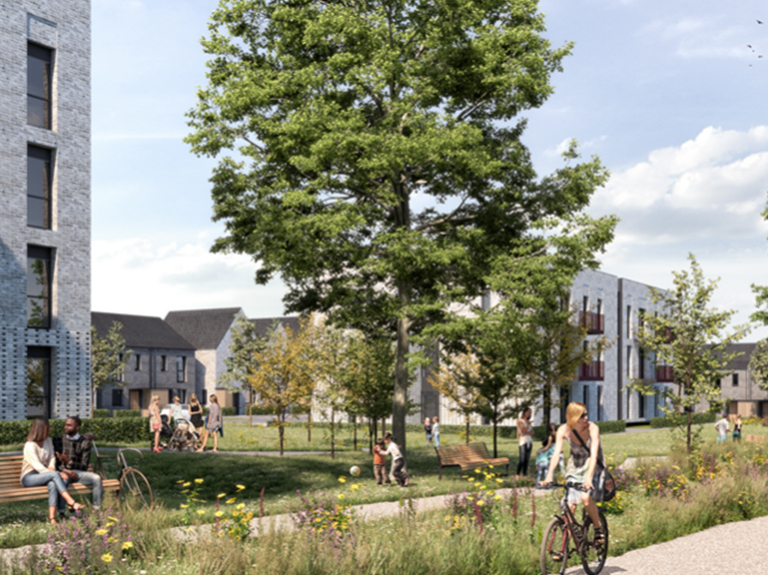
Housing delivery in Bristol
Marvin Rees, our preceding Mayor of Bristol, had set a target to deliver 2000 homes a year in the city by 2024, with 1000 of them to be affordable. At the same time Bristol City Council has scaled up its council house building programme, with a proposed £1.8 billion investment to deliver 9000 new council homes as part of a 30 year plan through a combination of land-led and developer led schemes. We have also formed our own housing company, Goram Homes, to work with the development community to accelerate delivery of new homes. The Council’s cabinet has also approve the creation of another company to help address the challenge of providing sufficient temporary accommodation for the city’s needs, while securing best value.
These, and other measures we will take in the near term to help us achieve the Bristol One City Plan vision that “by 2050 everyone in Bristol will live in a home that meets their needs within a thriving and save community” are outlined in Project 1000: Affordable Housing Delivery Plan 2022-2025. The Project 1000 approach is designed to ensure the best use of Bristol City Council’s resources of land, time, money and influence in order to:
- Deliver affordable housing at pace by bringing together all our operations, partnerships, and ways of delivering homes into one cohesive plan
- Improve and support our city’s health by providing homes and addressing the housing crisis.
For more information, please visit www.bristol.gov.uk.
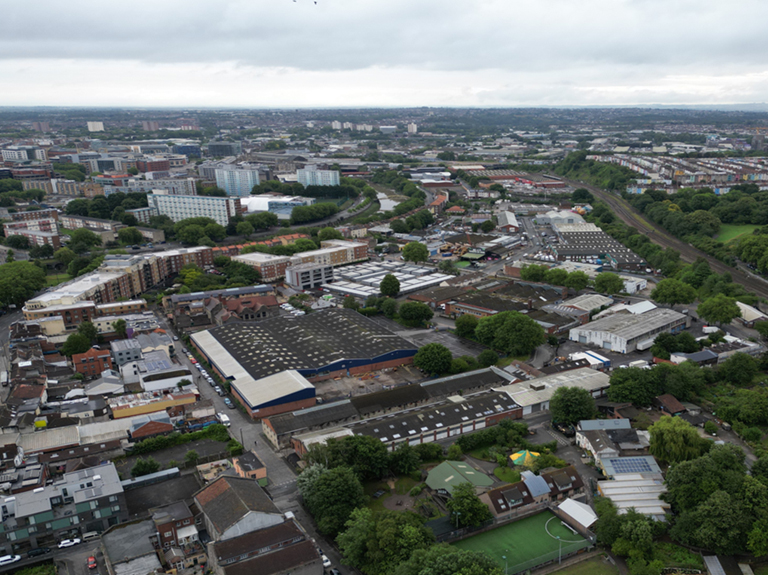
Industrial intensification and co-location
Bristol has a growing population and need to provide more housing in sustainable urban locations. At the same time we face strong demand for industrial and employment space, and vacancy levels for industrial across the city are low. Bristol City Council is keen to explore new forms of development that enable us to use land as efficiently as possible to help us meet these challenges.
Industrial intensification and co-location with residential are under active consideration as delivery solutions. Given the emerging nature of this market, thinking is at an early stage. Bristol City Council is eager to hear from developers, funders and managing agents providing similar spaces in other locations or looking to enter the market, and who are interested in seeing such space come forward in Bristol.
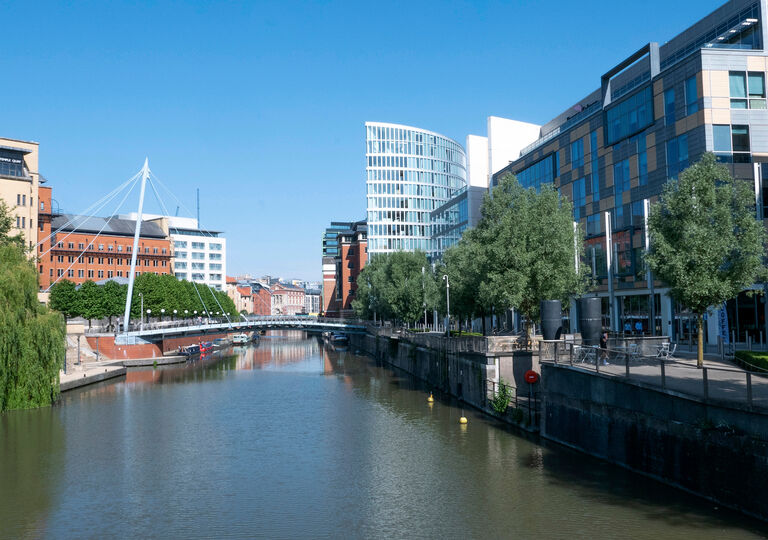
Temple Quarter and St Philip’s Marsh
The 130 hectare site of brownfield land will transform over the next 25 years into a thriving, well-connected mixed-use community. The regeneration will create up to 10,000 new homes, 22,000 new jobs and bring £1.6 billion each year to the city economy.
The project features the renewal and upgrading of Bristol Temple Meads Station, creating capacity for further rail services and new access points to the station. Immediately adjacent to the station, the University of Bristol is developing a new city centre campus with a strong focus on innovation.
Significant investment in flood defences is planned so that the full potential of the area can be fully unlocked. Find out more
(Image credit: Bristol Design)
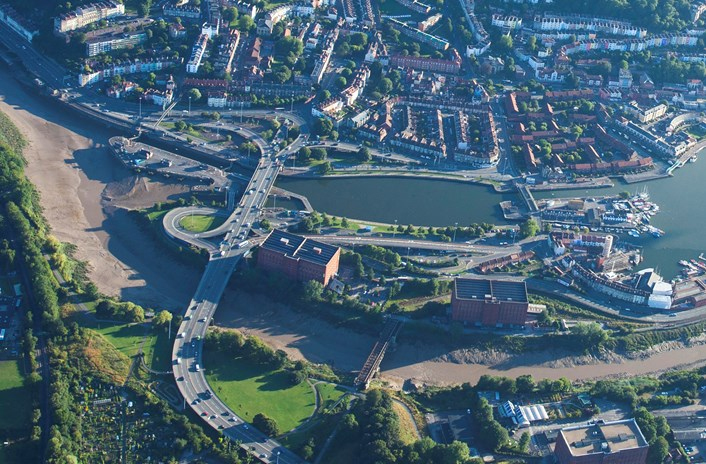
Western Harbour
Bristol’s harbourside has become one of the city’s best loved destinations – a place where people increasingly want to live, work and spend their leisure time.
The Western Harbour area provides an opportunity to unlock space for sustainable and affordable homes close to the city centre, create new jobs, provide sustainable travel options, create good-quality public space, and improve access to the water.
The council is currently undertaking consultation to develop a city-wide vision for the future of the area that will inform and underpin a masterplan and delivery strategy. Find out more
(Image credit: Bristol Design)
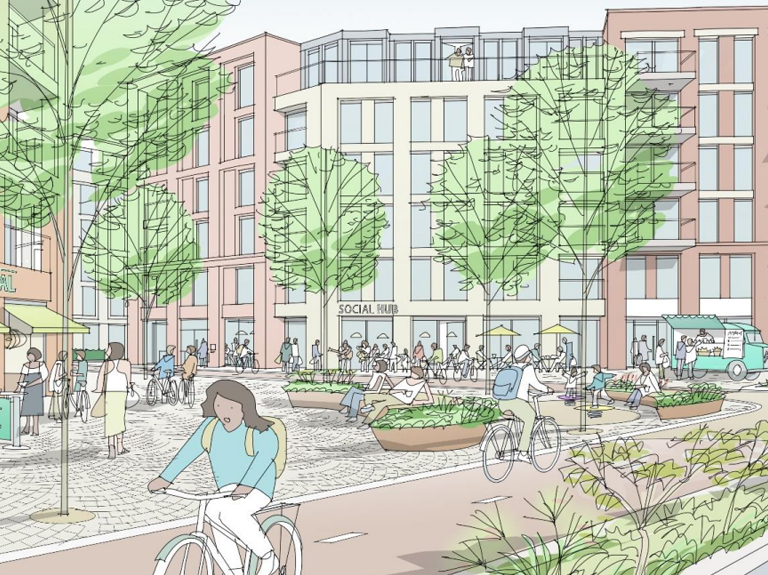
Whitehouse Street Regeneration Framework
The Whitehouse St Framework was endorsed by Bristol City Council Cabinet in March 2023. The Framework sets out the vision for the regeneration of the area, informed by extensive engagement with the local community, and will guide and shape redevelopment proposals to support the transition to a genuinely mixed-use neighbourhood in Bedminster. New homes, employment floorspace (including industrial space) and community space will be delivered and help revitalise this area, support businesses on nearby East St and Bedminster Parade and facilitate the integration of the existing community with new residents and businesses moving into the area.
The regeneration of the Whitehouse Street will deliver:
- Around 2,000 new homes.
- Up to 15,000m2 of employment space to ensure no net loss of jobs across the regeneration area, and the potential for jobs growth.
- New and improved active travel routes connecting Bedminster to Temple Meads and the city centre.
- New community infrastructure.
- Improved public realm including new street trees and planting and pedestrian public spaces.
(Image credit: Stride Treglown)
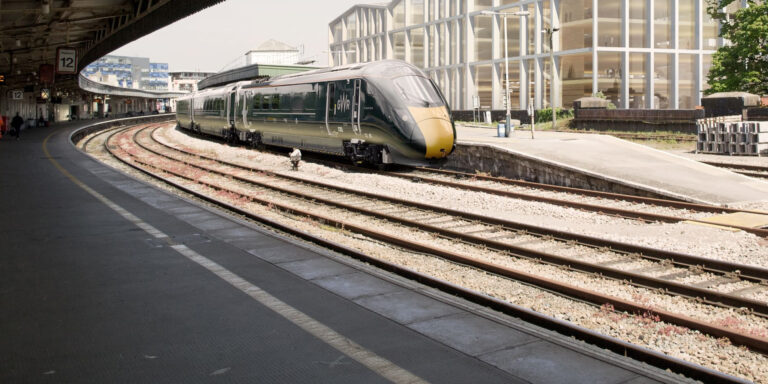
Bristol's enterprise zone
Temple Quarter is one of the UK’s leading regeneration and infrastructure development programmes. Home to financial and professional services, and creative hub.
Infrastructure enablers for growth
Investment in infrastructure is key to delivering regeneration and growth in the city with a key focus on flood defences and investment in mass transit.
Flood defence
Bristol City Council is working with the Environment Agency to deliver a long-term plan to better protect homes and businesses from flooding and enhance the River Avon for all in a way which works for Bristol year-round. Defences will provide new green spaces, better access to the river, enhanced heritage features, and improved transport connections. Find out more
Regional and local mass transit
For Bristol to be an attractive place to work, live and visit for everyone, it needs a transport network that supports the local economy, enhances the urban environment, and contributes to high-quality, people friendly places. Building on the success of the three cross-boundary metrobus services, the city is working with its neighbouring local authorities and the West of England combined authority to improve the efficiency, capacity, and reliability of public transport services. In addition, funding is also being allocated to local railway stations and improving service frequency.
